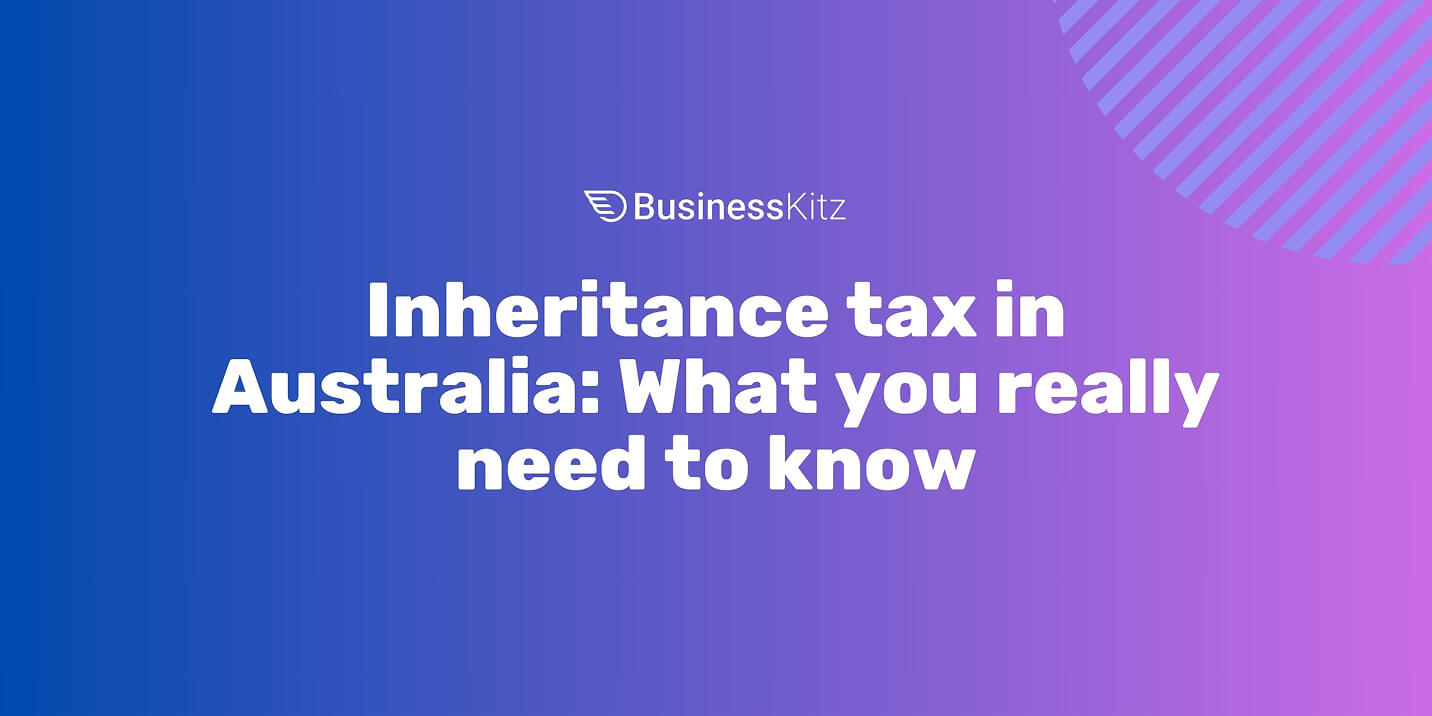
We've helped businesses save $55m with our all-in-one platform. Get instant access to this template and 115+ others, plus AI-powered document creation, starting completely free.
Are you worried about inheritance tax affecting your family's financial future in Australia? Many Australians assume they'll face hefty taxes when inheriting assets or planning their estate. The truth is more nuanced and potentially less burdensome than you might expect. Understanding the real tax implications of inheritances is crucial for effective estate planning and ensuring your assets transfer as smoothly as possible to your beneficiaries. This comprehensive guide explores the current state of inheritance taxation in Australia and how to navigate the related financial considerations.[ez-toc]
Contrary to what many believe, Australia does not have a specific inheritance tax or "death duty" as it's sometimes called. According to the Australian Taxation Office (ATO), formal death duties were abolished across all Australian states by 1979. This means when you inherit money or assets as a beneficiary of an estate, you don't pay immediate tax simply for receiving the inheritance.However, this doesn't mean inheritances are entirely tax-free. There are several tax implications that may arise after you receive an inheritance, depending on what you do with the inherited assets.At Business Kitz, we've found that many business owners and individuals misunderstand their tax obligations when dealing with inherited assets, often leading to unnecessary stress and potential compliance issues. Our document vault provides a secure way to organise estate planning documents and keep track of inherited assets for tax purposes.

Australia previously had various forms of death duties at both the federal and state levels. According to the National Archives of Australia, the federal estate duty was first introduced in 1914 and was in place until its abolition in 1979.Queensland was actually the first state to abolish death duties in 1977, which created a "domino effect" leading other states to follow suit to prevent a mass migration of wealthy retirees to Queensland. By 1979, all Australian states and territories had abolished their death duty taxes.This historical context is important because it explains why many older Australians might still have concerns about inheritance taxes, having lived through a period when they existed.
While there's no direct inheritance tax, several tax considerations may apply after receiving an inheritance:

The Australian Taxation Office explains that Capital Gains Tax (CGT) isn't triggered immediately when you inherit an asset. Instead, CGT may apply when you later sell or dispose of the inherited asset.When calculating CGT on inherited assets, special rules apply:
If the inherited asset was the deceased's main residence, CGT exemptions may apply if the property is sold within two years of inheritance.
According to the ATO guidelines on deceased estates, any income generated from inherited assets after the date of death is generally taxable:
This income must be declared in your personal tax return for the financial year in which it was earned.
The taxation of inherited superannuation depends on several factors, as outlined by the Australian Securities and Investments Commission (ASIC):
These rules highlight the importance of proper superannuation beneficiary nominations as part of your estate planning.
If you inherit assets from overseas or own foreign assets that may be inherited by others, international inheritance tax rules become relevant. Unlike Australia, many countries do maintain inheritance or estate taxes.According to the Department of Foreign Affairs and Trade, Australia has tax treaties with several countries that may affect how inheritances are taxed. For example:
If you have international assets or expect to inherit from overseas, seeking specialised advice is essential due to the complexity of cross-border taxation.At Business Kitz, we often recommend clients maintain comprehensive records of international assets using our secure document storage system to ensure they're prepared for potential international tax implications.
While Australia doesn't have an inheritance tax, proper estate planning can still help minimise potential tax impacts for your beneficiaries.
A testamentary trust is a trust established by a will that comes into effect after death. According to Legal Aid NSW, testamentary trusts offer several tax advantages:
Our document library includes templates for establishing comprehensive wills that incorporate testamentary trust provisions.
Careful planning around superannuation can significantly impact the tax efficiency of your estate. The Australian Taxation Office advises that:
Investment or insurance bonds can serve as tax-effective vehicles for intergenerational wealth transfer. According to the Australian Securities and Investments Commission, these financial products:

Business succession presents unique challenges when considering inheritance and taxation. According to the Australian Small Business and Family Enterprise Ombudsman, approximately 70% of Australian businesses are family-owned, making succession planning critically important.
The Australian Taxation Office offers several capital gains tax concessions that may apply when passing on business assets:
These concessions can substantially reduce tax liabilities when transferring business assets to the next generation. However, eligibility requirements are strict and require careful planning.At Business Kitz, we've created specific business succession planning templates to help facilitate smoother transitions while maximising available tax concessions.
No, Australia does not have inheritance tax or death duties. These were abolished across all Australian states and territories by 1979, according to the Australian Taxation Office. However, there may be other tax implications when dealing with inherited assets, such as capital gains tax when selling inherited property or tax on income generated from inherited investments.
Generally, you don't need to declare the inheritance itself on your tax return. According to the ATO guidelines, an inheritance is not classified as income and therefore isn't taxable when received. However, any income generated from inherited assets after you receive them (such as rent, interest, or dividends) must be declared on your tax return.
When you inherit property in Australia, no immediate tax is payable. However, capital gains tax may apply when you eventually sell the property. The Australian Taxation Office states that the CGT calculation depends on when the deceased acquired the property and whether it was their main residence. If the deceased's home is sold within two years of their death, CGT exemptions may apply.
Yes, receiving an inheritance can potentially affect your pension or other government benefits. According to Services Australia, lump sum inheritances themselves aren't assessed as income but may be counted under the assets test. Additionally, if you invest your inheritance and receive income from these investments, this will be counted under the income test, which could reduce your pension payments.
While Australia doesn't have an inheritance tax, you can minimise related tax implications through several strategies. According to financial advisors at ASIC's MoneySmart, these might include careful timing of asset sales to manage CGT, investing inherited funds in tax-effective vehicles, contributing to superannuation within contribution caps, and seeking professional financial advice to structure your affairs efficiently.
Superannuation doesn't automatically form part of a deceased's estate. According to the Australian Securities and Investments Commission, superannuation trustees determine who receives the death benefit, giving significant weight to binding death benefit nominations. Death benefits paid to dependents (spouses, minor children, financial dependents) are generally tax-free, while benefits paid to non-dependents may attract tax on the taxable component of the benefit.
While Australia doesn't impose an inheritance tax, if you inherit assets from overseas, you may be subject to foreign inheritance or estate taxes. According to the Australian Taxation Office's guidance on foreign income, you should check the tax laws of the country where the assets are located. Additionally, once you receive the inheritance, any income generated from these assets must be declared in your Australian tax return.
Understanding the tax implications of inheritances in Australia is essential for protecting your family's financial future. While we don't have a direct inheritance tax, careful planning remains crucial to minimise potential capital gains tax, manage income tax effectively, and ensure your assets are distributed according to your wishes.At Business Kitz, we provide comprehensive document management solutions that support effective estate planning and business succession strategies. Our secure document vault helps you organise important estate planning documents, while our extensive template library includes wills, powers of attorney, and other essential legal instruments for effective estate management.Sign up for a free Business Kitz account today to access these resources and take the first step toward securing your financial legacy for future generations.
Copyright © 2025 Business Kitz 14312161